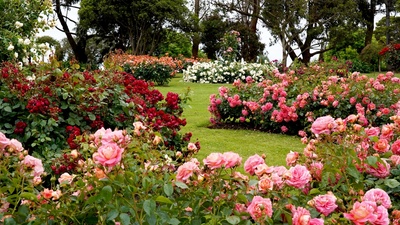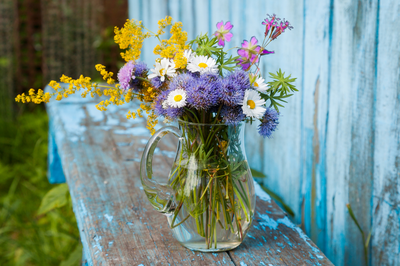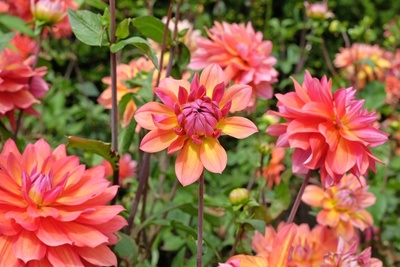May’s a busy month in the garden. Summer’s just around the corner and everywhere you look, plants are flowering and bees are buzzing. When the sun shines, there’s nothing better than a garden in May, so here are a few tips to get your garden looking its best.
What to plant in May?
By May, the weather should be warm enough for all those tender plants you’ve been nurturing on windowsills and in greenhouses. Tomatoes and peppers can be planted outdoors in May, but harden them off first by leaving them outside during the day and taking them indoors again at night for 10-14 days before planting out. Potted dahlias and cannas can also be hardened off now, but leave aubergine seedlings in the greenhouse until the end of May, unless the weather’s spectacularly good.
If you’re growing potatoes, increase your harvest by earthing up your plants. Once the shoots are about 20cm tall, mound up soil around them, covering the lower part of the stems and making a ridge around 15cm high. Keep doing this as the stems grow, until the ridge is around 30cm high.
Plant summer bedding in pots and borders for a splash of instant colour. Petunias and geraniums are ideal for sunny spots, and begonias and fuchsias flower in shade for weeks on end in summer and early autumn.
 What to prune and tidy in May
What to prune and tidy in May
If the weather’s dry, water regularly, especially vegetables. Use a waterbutt to collect rainwater for watering if possible.
Lawns should be growing strongly by now, so reduce the cutting height on your mower. Feed your lawn to keep it looking lush, and sow seed to fill in any bare patches.
Set up supports now for climbing beans and for herbaceous perennials like asters and peonies, before the plants get big and start to sprawl. Early May’s a good time to divide herbaceous perennials, and also to lift and divide clumps of daffodils, giving you more plants for next spring. Deadhead tulips, but leave the foliage to die back.
Prune spring-flowering shrubs like Chaenomeles (Japanese quince), forsythia and Ribes sanguineum (flowering currant) now, cutting back flowered stems to strong leafy buds lower down.
Keeping pests and diseases under control
Keep an eye out for early signs of garden pests and diseases. If you can catch them early, they’re much easier to deal with.
- Protect carrots from carrot fly by putting up netting barriers around their bed
- Pinch out the growing tips of broad beans once the first beans start to appear, to reduce the risk of blackfly
- Remove small aphid infestations by hand
- Watch out for signs of black spot on roses and spray with fungicide
- Net strawberries against birds.
If you’re looking for some garden inspiration, why not pay a visit to our garden centre? You’ll find everything you need for your garden, plus friendly staff to help and advise.




